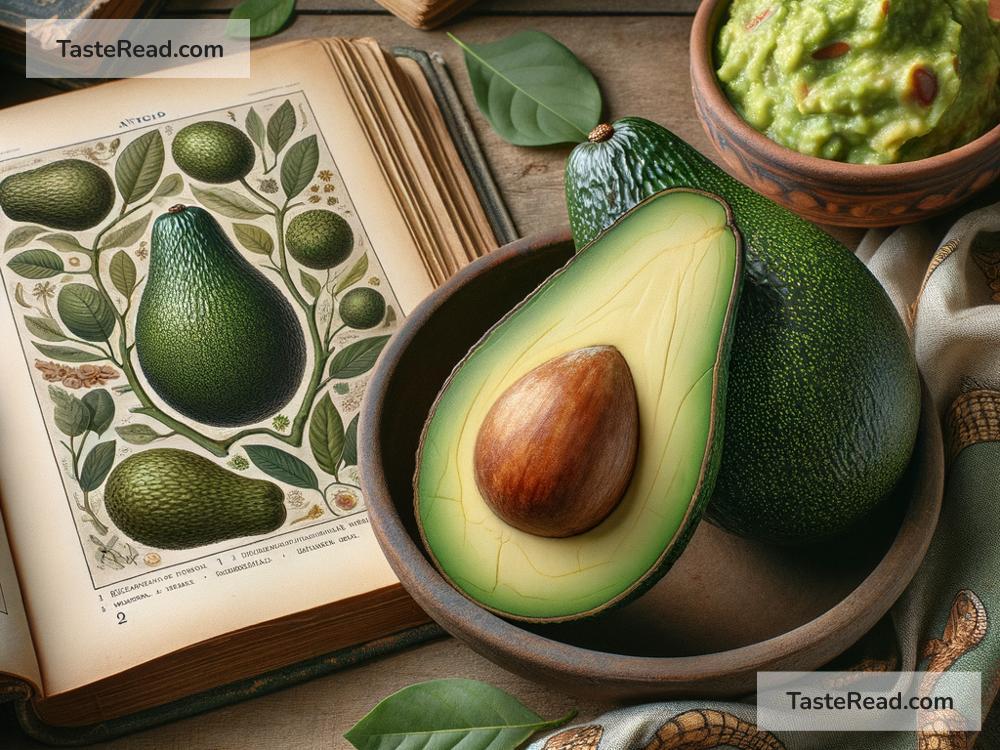Why Are Avocados Called Alligator Pears?
Avocados are everywhere these days, from toast to smoothies to guacamole at parties. But did you know that avocados have a quirky nickname: “alligator pears”? This fun moniker isn’t just random—it actually has a fascinating origin tied to the way these unique fruits look and feel. In this blog post, we’ll explore why avocados are called alligator pears and the history behind their unusual name.
The Alligator Connection
To understand why avocados are called alligator pears, you need to take a moment to look closely at their shape and texture. Avocados have a bumpy, rough green skin, which can remind people of the rough scales on an alligator’s back. Plus, their shape is rounded or oval—similar to a pear. When you combine these two simple observations, it’s clear where the nickname “alligator pears” comes from.
This nickname captures the fruit’s unique appearance perfectly. Imagine holding an avocado in your hand: its rugged green surface and plump pear-like shape resemble a miniature version of an alligator’s body. The term likely stuck because it describes the fruit in a way that’s relatable and fun.
The Name’s History
The name “alligator pear” didn’t just pop up overnight. It can be traced back to early interactions between English speakers and the fruit. Avocados are native to Central and South America, where they have been grown and enjoyed for thousands of years. Indigenous peoples like the Aztecs called the fruit “ahuacatl,” a word which also has an interesting meaning. In Nahuatl, the Aztec language, “ahuacatl” translates to “testicle,” a reference to the fruit’s shape and the fact that it grows in pairs on the tree. This ancient word is the root of our modern name “avocado.”
When Europeans first encountered avocados during their explorations in the Americas, they adopted the fruit into their diets but struggled with its name. Over time, the word “ahuacatl” evolved into different forms as various languages tried to adapt it. For example, the Spanish called it “aguacate,” and eventually, English speakers settled on “avocado.”
But as the avocado spread to English-speaking regions, people also began calling it “alligator pear” because of its appearance. This simpler, descriptive name may have been easier to associate with the fruit before “avocado” became widely known. For many years, both “avocado” and “alligator pear” were used interchangeably in some parts of the world.
Fun Regional Nicknames
Interestingly, “alligator pear” isn’t the only nickname given to avocados. In different countries and cultures, people have come up with their own creative names for this beloved fruit. For instance:
- In parts of Jamaica, some locals still call avocados “pear.” When someone says, “I’ll have pear with my meal,” they’re referring to avocado—not the sweet fruit we know as pears.
- In Australia, avocados are sometimes nicknamed “avo” for short. You might hear someone say, “Want some avo on your toast?”
- In the Philippines, avocados are often used in sweet dishes, earning them names that reflect their creamy texture and versatility.
These regional nicknames show how avocados have captured people’s imagination all over the world. While “alligator pear” may not be used as commonly today, it’s still one of the most charming names tied to the fruit.
Why the Nickname Faded
So, if “alligator pear” is such a fun name, why don’t people use it as much anymore? The main reason is marketing. As avocados became more popular in the United States and other countries during the 20th century, producers and marketers wanted consumers to focus on the fruit’s healthy benefits and exotic origins. The name “avocado” was more sophisticated and appealing for branding purposes, particularly in grocery stores and restaurants. Calling them “alligator pears” might have made people think of reptiles rather than delicious food!
Over time, the name “avocado” won out, and “alligator pear” gradually faded from common use. Today, most people know them simply as avocados, though the quirky nickname still pops up in books, older recipes, and conversations among avocado enthusiasts.
Avocado Love Around the World
Even though the nickname “alligator pear” isn’t as widely used anymore, avocados remain beloved worldwide for their rich flavor and creamy texture. They’re packed with nutrients like healthy fats, fiber, and vitamins, making them one of the healthiest fruits you can eat. Whether you call them avocados, “avo,” or “alligator pears,” there’s no denying their versatility and appeal.
From guacamole in Mexico to avocado toast in trendy cafés, this humble fruit has made its way into the hearts (and stomachs) of millions. And the next time you slice into an avocado, take a moment to appreciate its rough green skin and rounded shape—it’s easy to see why someone once called it an alligator pear!
Conclusion
The nickname “alligator pear” is a charming reminder of how people around the world find creative ways to describe the fruits and vegetables they love. While the name isn’t as common anymore, it reflects the avocado’s interesting history and its unique appearance. So the next time you enjoy some guacamole or spread avocado on your toast, take a second to think about its alligator-like skin and pear-like shape—and you’ll understand why this beloved fruit earned such a fun nickname!


